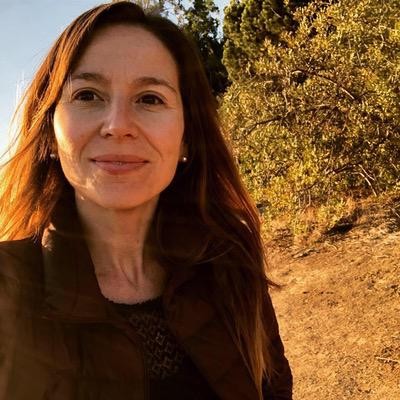
Kate Levin
Poetry
Kate Levin holds an MFA in Creative Writing from the University of Michigan. Her work has appeared in The New York Times, The Boston Globe, The Nation, The Paris Review - The Daily, River Teeth, and elsewhere, and has been awarded a Pushcart Prize. She teaches writing at the University of Southern California and in the California state prison system. Her writing can be found at www.kate-levin.com.
Catching Up
The last time we talked politics on York Lake, I hadn’t gotten a bite all morning.
Then you or I brought up Hillary Clinton—both of us
feeling pissed at her across the canoe, righteously pissed about something
but in a calmly analytical way (you know how we are)—
and my line jerked so hard, so suddenly,
that I lurched towards the water.
You helped me reel in a meaty pickerel, ugly and recalcitrant. I remember its teeth.
I remember your pride. Hillary,
we named patron saint of desperate fishers.
That must have been 2008. Now you are that lake,
not in or under exactly but of the water
and behind the times.
You don’t know Hillary ran again, almost won. You don’t know who did.
What you don’t know could fill—
I imagine I get to phone you across the boundary:
“Dad,” I say. I’m laughing. I’m hanging my head.
“You won’t fucking believe who’s president.”
And you’re not indifferent, exactly, but—our rapport is gone. It’s no one’s fault.
You are outside of time, and I should leave you to it. Your lacustrine city.
I won’t call anymore.
I will just say: I am a mother now. You remember my hand-wringing—
how I couldn’t reconcile having kids with climate change? How I piled
equivocations at the foot of your hospital bed. How I fretted about how to live
flaunted the luxury of decisions
before your protracted dying. It seems so childish now. But then,
I was your child.
My son’s only trip to York Lake was the day we deposited you
there. Just a baby strapped to his father’s chest in a canoe,
he can’t remember what I do: how astonishing it was
to see you neither dissolve nor sink to the bottom, but spread—
clouding the water grey-white.
How proud you’d have been to see his first catch
at age two, to see him lift a sunfish out of a city lake with a makeshift pole
handed to us by a friendly old man in the park.
I tell him all the time how much you loved fishing. He knows you
would have hated this president. He prompts me to speak of you
in the present tense, understanding somehow better than I do
the nature of ash, water and time.
“
Just as I’ll say to my son, ‘Oh, such-and-such happened before you were born,’ in my imaginary conversations with my
father, I’ll experience the reverse: ‘Wait, were you alive to see Obama get reelected? No, sorry, that happened after
you died . . .’ Our timelines overlap incompletely with those of the ones we love. My father, my son, and I never lived
all at the same time, for example. But: language, memory, dreams, fantasy—I appreciate (and am sometimes unsettled by)
the ways they can distort this reality.
”

